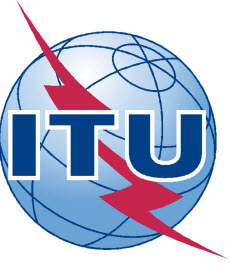
DUBAI – Negotiations to update UN telecommunications rules have collapsed with Canada, U.S. UK, and several of their allies refusing to sign the proposed International Telecommunications Regulations (ITR) tabled by the International Telecommunication Union (ITU).
"Canada believes in a secure, stable and resilient Internet that enables rapid innovation and delivers benefits for Canadians," said Christian Paradis, Minister of Industry. "The current multi-stakeholder, private sectorled model promotes innovation and the development of new digital industries."
With many like-minded countries, Canada endeavoured to reach consensus on new International Telecommunication Union regulations that recognized advances in telecommunications while maintaining an open, accessible Internet. The final treaty text tabled in Dubai included provisions that threaten these freedoms and, as a result, Canada and many other nations were unable to sign on to these new regulations.
"Our government will continue to support an open and accessible Internet that facilitates economic development and prosperity," added Paradis.
"It is with a heavy heart and a sense of missed opportunities that the U.S. must communicate that it is not able to sign the agreement in the current form," U.S. Ambassador Terry Kramer told attendees of the World Conference on International Telecommunications (WCIT).
"The Internet has given the world unimaginable economic and social benefits during these past 24 years – all without UN regulation," added Kramer. "We candidly cannot support an ITU treaty that is inconsistent with a multi-stakeholder model of Internet governance."
The ITU is a specialized agency of the United Nations which is responsible for information and communication technologies. It coordinates the shared global use of the radio spectrum, promotes international cooperation in assigning satellite orbits, works to improve telecommunication infrastructure in the developing world, and assists in the development and coordination of worldwide technical standards. The WCIT's purpose is to update the ITRs, a global treaty that facilities international communication and was last updated in 1988.
The conference in Dubai has however become a great source of controversy since the ITU has been accused of seeking to move beyond its stated role by proposing measures to increase regulation of the Internet. The conference is scheduled to end today.

While the ITU secretariat promised that the WCIT wouldn't discuss Internet governance, the final treaty text contains a resolution that explicitly “instructs the [ITU] secretary-general to take the necessary steps for the ITU to play an active and constructive role in… the internet." Apparently a Russia-driven vote late on Wednesday pushed to include the Internet in the resolution.
The new resolution updates the 24-year-old treaty and includes measures that would give countries a right to access international telecommunications services and the ability to block spam. Delegations declining to sign the amended text contend it would pave the way for government censorship and control over the Internet. The countries which did not sign the new treaty will continue to be bound by the 1988 version, said Sarah Parkes, a spokeswoman for the International Telecommunication Union (ITU).
"What is clear from the ITU meeting in Dubai is that many governments want to increase regulation and censorship of the internet," said Google in a statement.
"We stand with the countries who refuse to sign this treaty and also with the millions of voices who have joined us to support a free and open web."
A wide variety of groups including Avaaz, the International Trade Union Confederation, Access, Fight for the Future, and OpenMedia were also urging all member state delegations of the International Telecommunication Union (ITU) to not sign the revised ITRs treaties and to oppose expanding ITU authority to the internet.
Altogether, nearly 1 million signatures were collected by grassroots groups and delivered to ITU delegates by human rights, labor, tech policy, and media advocacy groups.
“Despite strong opposition from a number of governments, and the demands of nearly 1 million people from around the world, the final text of the ITRs includes a resolution that explicitly provides for ITU involvement in Internet policy, and contains a number of problematic provisions that could affect human rights and free expression online. We urge governments not to sign the ITRs as they stand. The US, UK, Canada, Denmark and Czech Republic have declared that they will not sign the ITRs. In explaining their decisions, they have referenced the "Internet Resolution" (Resolution/PLEN 3) and the lack of opportunity to fully debate these issues in the public session. A growing list of countries, including Poland, Kenya, Costa Rica, Sweden, and the Netherlands have elected to consult with stakeholders in their countries to decide whether or not they will sign the treaty,” stated the group in a message sent to the ITU.



